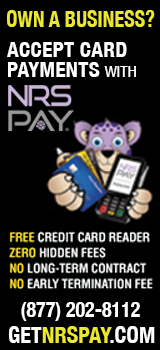What happens if you work in the U.S. without work authorization?

Most people already know you cannot legally work in the U.S. without employment authorization. Not all visas allow for the ability to work. After your U.S. Consulate Interview, the officer will usually tell you or often outright warn you not to work while on a B-1/B-2 (visitor visa) or F-1 (student visa). If this is the case, why do so many people still try to work without the proper documents? Is it because they are unaware of the consequences, because they are desperate, or because they just don’t care or are at least willing to take the risks?
Even if you enter the U.S. legally, you still need to have the right to work legally. Just like you cannot remain in the U.S. indefinitely while on a visitor or student visa, you cannot work without a work permit or a visa that includes employment authorization. “Working under the table” unfortunately is common for both Americans and Foreign Nationals. Both expose themselves to possible IRS tax consequences for not declaring their income but getting paid “off the books” can also jeopardize your immigration status. If you are caught working without employment authorization it can cause you to lose your visa, harm your chances to get a green card, or potentially make you inadmissible to the United States and placed at risk for removal (deportation).
Employers can also get into trouble if they hire or continue to pay employees who do not have proper work authorization. Employers are supposed to have each employee fill out an I-9 form and screen for both 1) Legal U.S. status and 2) work authorization. I-9 compliance is required for all employees physically present in the United States. Companies found to be intentionally or willfully violating immigration laws can face heavy fines and sanctions. If you are an employer and have any questions about the immigration status of an employee, it is best to contact an experienced immigration attorney. If their documents do not look legitimate or you just want to make sure you don’t have any questions, do the smart thing and get some legal advice.
Did you know that the U.S. Department of Labor actually performs audits and even surprise site visits if they suspect unlawful activity? Why does the DOL care? Immigration laws are in place to protect American workers but also prevent foreign workers from being exploited. The Labor Department wants to ensure that all workers are paid fair (or at least minimum) wages and work under proper working conditions. Additionally, if a foreign worker is on a work visa they must be paid at least the prevailing wage which is determined according to the industry, job title, and metropolitan area. You can always legally pay a foreign worker more than the prevailing wage but never less.
H-1B visas, O-1 visas, E-2 visas, L-1 visas, and even J-1 and R-1 visas are all work visas that have an official sponsor. When you are on a work visa you are legally allowed to work for your sponsoring company but only for the company written on your visa. It is not permissible to perform additional work outside of your work visa. If you want or need a second job you must obtain a second work visa. For example, if you play professional cricket in the United States and you are from India you will need a work visa such as a P-1 to be paid to play. If you are a Hindu priest working at a Temple you will need an R-1 religious visa to work and remain in the United States.
What about if my spouse has a work visa, can I work? The answer is … it depends on the type of visa your spouse has. Don’t assume just because your spouse can work it automatically means you are able to as well. Some work visas allow a dependent spouse to have work authorization. Other work visas do not. If you are on an H-1B visa, your spouse can usually obtain an H-4 dependent visa and be able to work. If you are a researcher or a postdoc on a J-1 visitor exchange visa, your spouse can apply for a J-2 visa which allows employment authorization.
What about working while on a student visa? This is one of the more complicated topics. Students on F-1 visas generally have to apply for CPT (curricular practical training) or OPT (Optional Practical Training) before they can get a work permit. The F-1 visa itself does not allow you to work in a paid “job training program” without going through your International Student’s Officer or speaking with your Designated School Official (DSO). International students can usually work part-time on campus jobs under a work study program. However, it is still best to always check with your school international office before you accept any employment.
This article does not constitute a solicitation or provision of legal advice and does not establish an attorney-client relationship. The answers provided should not be used as a substitute for obtaining legal advice from an attorney licensed or authorized to practice in your jurisdiction. You should always consult a suitably qualified attorney regarding any specific legal problem or matter on time.
 U.S. Immigration Attorney Seth Finberg is a 2005 graduate of the University of Georgia School of Law. Seth is a member of the Georgia Bar and the American Immigration Lawyers Association (AILA). Mr. Finberg is the owner and founder of South Florida based Finberg Firm PLLC and he represents clients nationwide and internationally in business, employment, and investment immigration. He can be reached by phone at (305)-707-8787 or by email at info@finbergfirm.com or visiting www.finbergfirm.com.
U.S. Immigration Attorney Seth Finberg is a 2005 graduate of the University of Georgia School of Law. Seth is a member of the Georgia Bar and the American Immigration Lawyers Association (AILA). Mr. Finberg is the owner and founder of South Florida based Finberg Firm PLLC and he represents clients nationwide and internationally in business, employment, and investment immigration. He can be reached by phone at (305)-707-8787 or by email at info@finbergfirm.com or visiting www.finbergfirm.com.




























